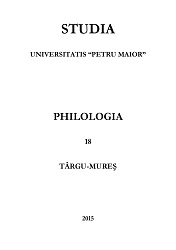Jhumpa Lahiri and Psychological Dislocation in “Interpreter of Maladies”
Jhumpa Lahiri and Psychological Dislocation in “Interpreter of Maladies”
Author(s): Smaranda ȘtefanoviciSubject(s): Gender Studies, Psychoanalysis, Theory of Literature, American Literature, Asylum, Refugees, Migration as Policy-fields, Sociology of Literature
Published by: Editura Arhipelag XXI
Keywords: psychological dislocation; nostalgic postcolonial lament; human communication; cultural disjunction; hybrid culture;
Summary/Abstract: As a postcolonial female writer, J. Lahiri’s favorite themes spin around nostalgic lament for her Indian origins, psychological dislocation, cultural disjunction and the trauma of self-transformation through immigration. The inability to see the world clearly points to the characters’ impossibility of communicating due to unspoken truths that deform reality and hence hinder interpretation and understanding of feelings. In Interpreter of Maladies, Lahiri advocates for a second generation immigrant character, whose hybrid condition allows him to communicate across gender, linguistic, and cross-cultural borders. Unfortunately, her characters fail to translate and interpret this liminal space. Despite Lahiri’s search as a lonely child and later as a writer, she has not found a remedy for this chronic, spiritual malady of this breakdown of communication yet. Her message in the short story “Interpreter of Maladies” is that you can be a foreigner in a new land or even within one’s family.
Journal: Studia Universitatis Petru Maior. Philologia
- Issue Year: 2015
- Issue No: 18
- Page Range: 103-109
- Page Count: 7
- Language: English

